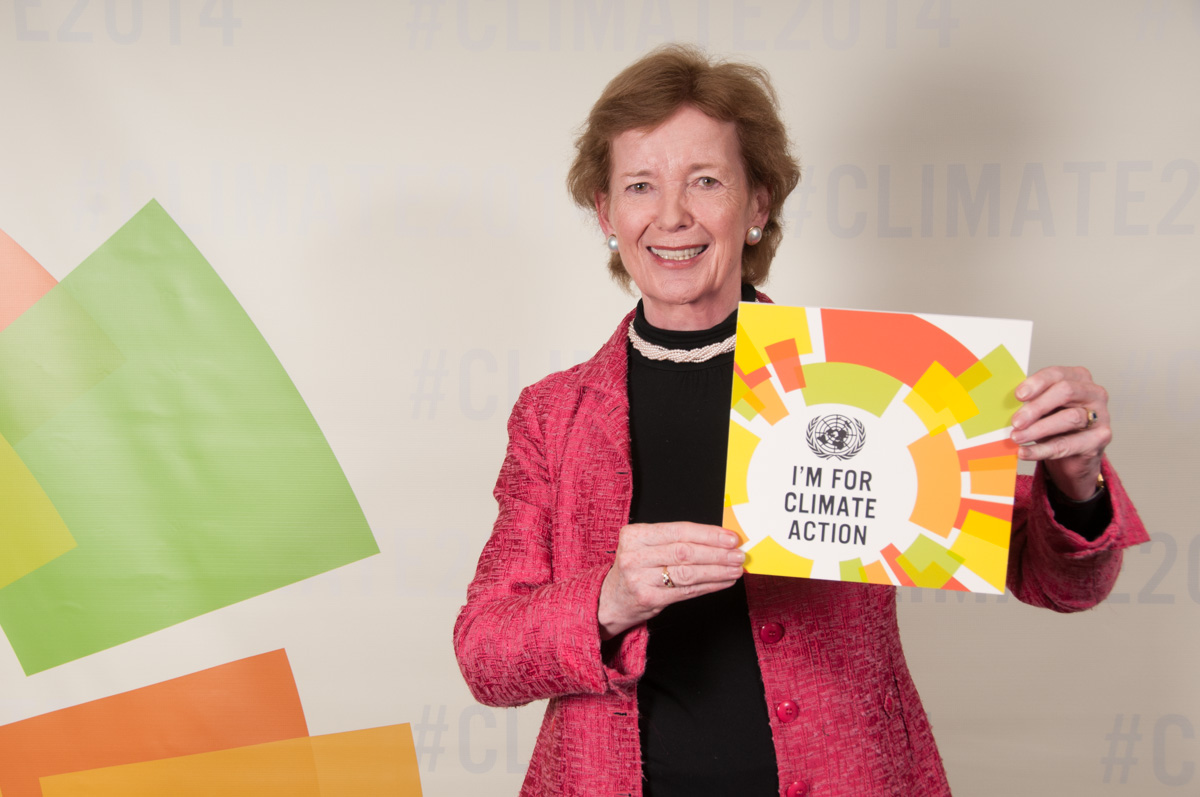Photo by United Nations Information Centers via Flickr (CC BY-ND 2.0).
The former president of Ireland and climate justice advocate Mary Robinson spoke at West Chester University last Tuesday.
The speech, which was followed by a Q&A session with WCU President Chris Fiorentino, covered Robinson’s experiences with the United Nations as well as around the world.
Though you may know her from her viral Ted Talk, Robinson served as the seventh president of Ireland from 1990 to 1997. Originally a lawyer, she became the first woman president as well as the first person to win the election without support of the Fianna Fáil party. She is also credited with making the position more prominent and influential in Irish politics.
During her time with the United Nations, Robinson was the High Commissioner for Human Rights. She credited this role with allowing her to see the human rights violations caused by the climate crisis and ultimately leading to the environmental activism she participates in now. Robinson created “Realizing Rights,” a non-governmental organization that was active from 2002-2010. The organization noted their goals “to integrate concepts of human rights, gender equality and enhanced accountability into efforts to address global challenges and governance shortcomings.”
During her speech, Robinson promoted her new book “Climate Justice: Hope, Resilience & the Fight for a Sustainable Future,” a collection of stories from climate activists around the world. She proudly joked that “climate change is a man made problem that requires a feminist solution” as she cited that the majority of her stories were about female activists.
Throughout her speech, Robinson discussed four ways that the climate crisis affects human rights: the third-world countries that face coastal and island effects, the way in which women are burdened by extra demands, the way in which children are burdened by the demands of their future and how it blocks developmental pathways. These developmental pathways include third world countries being able to build their economy with fossil fuels before transitioning to clean energy.
In order to lessen these effects, Robinson emphasized the need for a “just transition” to clean energy. She used the example of fossil fuel workers, suggesting pension for the older workers and funded retraining for the younger workers. This idea of “just transition” is very similar to the aforementioned developmental pathways, both of them allowing countries and citizens to readjust to a sustainable future.
At the end of her speech, Robinson took a more personal approach and reached out to the audience, suggesting that many of the people gathered in the Asplundh Concert Hall had their own anxiousness about the climate crisis. She encouraged the audience to engage in three steps: taking the issue personally and therefore making personal changes, getting angry and getting active in the world of protest and imagining what the solution to the climate crisis may look like.
The last of her three steps is one that is not often heard. Robinson went on to remind the audience that just because not all of us are politicians does not mean that we cannot conceive political solutions.
West Chester University president Chris Fiorentino took to the stage for a Q&A with Mary Robinson. She expressed pride in the university’s sustainability efforts as lead by students and faculty. When asked how WCU students could be thinking about their future in tandem with the environment, Robinson said that as long as someone follows the three steps, they will be doing all they need to.
Robinson left the stage after a total of three standing ovations and over an hour dedicated to the climate crisis. Her speech made the climate crisis seem personal and solvable, giving a new purpose to an audience seeking climate justice. Robinson will continue to speak at universities and events throughout 2020 and beyond.
Caroline Helms is a first-year student majoring in English and minoring in political science. CH923631@wcupa.edu

